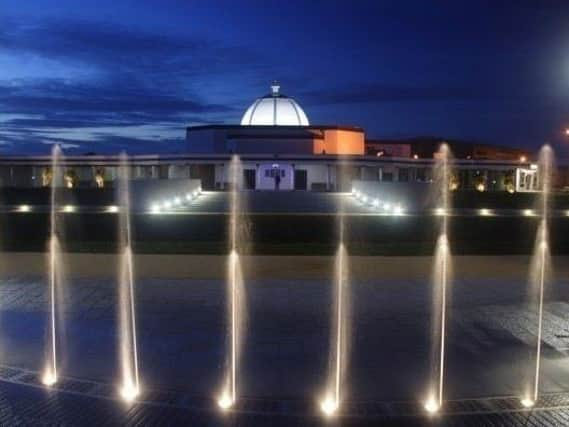Fylde coast landmarks to go purple to highlight census


Councils across Lancashire, including Blackpool, Wyre and Fylde, are asking households to take part in the latest census this spring and they are hoping for a strong input.
The 2021 survey will be the first one to be run online in its 200 year history.
Advertisement
Hide AdAdvertisement
Hide AdRun by the Office for National Statistics (ONS) every 10 years, the census provides the most accurate estimate of all the people and households in England and Wales.
It has been carried out every ten years since 1801, with the exception of 1941.
This time the ONS is making an effort to try and involve the harder to reach key population groups who may have certain barriers to completing the census.
These groups include Eastern Europeans, low income households and people lacking digital skills who are aged 65 and over.
Advertisement
Hide AdAdvertisement
Hide AdTo help with this, for three nights on 'Census Weekend' (Friday March 19 to Sun March 21), the ONS has arranged with the local authorities for local landmarks to be lit-up purple.
Why are censors necessary and how is the information used?
The details provided helps central government and organisations such as as councils and health authorities, plan and fund public services across England and Wales.
Census outputs inform where billions of pounds of public funding is spent on services like transport, education and health – on cycle routes, schools and dental surgeries.
Lancashire County Council was able to use the 2011 census information to identify priority areas for their ‘Superfast’ broadband scheme, focusing on areas where social exclusion directly related to internet provision.
Advertisement
Hide AdAdvertisement
Hide AdThe information is often used by charities and voluntary organisations as evidence to get funding.
It helps businesses to understand their customers and, for example, decide where to open new shops.
The census 2021 will be the first run predominantly online, with households receiving a letter with a unique access code, allowing them to complete the questionnaire on their computers, phones or tablets.
Iain Bell, deputy national statistician at ONS, said: “The census provides a unique snapshot of our communities.
Advertisement
Hide AdAdvertisement
Hide Ad“It benefits everyone. Based on the information you give, it ensures millions of pounds are invested in emergency services, mental health care, school places, hospital beds, houses, roads, GP’s and dentist’s services.
“No-one should miss out. Everyone can complete on online with a new search-as-you-type ability and paper forms for those who need them.”
Census day will be on March 21, but households will soon receive letters with online codes explaining how they can take part.
The census will include questions about your sex, age, work, health, education, household size and ethnicity. And, for the first time, there will be a question asking people whether they have served in the armed forces, as well as voluntary questions for those aged 16 and over on sexual orientation and gender identity.
Advertisement
Hide AdAdvertisement
Hide AdResults will be available within 12 months, although personal records will be locked away for 100 years, kept safe for future generations.
For more information and advice on how to answer the questions, visit census.gov.uk.